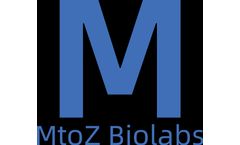Tumor Specific Antigenic Articles & Analysis: Older
9 articles found
In the environment of cancer, antigens may be specific to tumor cells and are known as tumor-specific antigens (TSAs) or tumor-associated antigens (TAAs). ...
Their monoclonal antibodies, linkers, linker-cytotoxin molecules, and newly introduced antigenic epitopes may all have immunogenicity. This makes the immune response induced by ADC drugs more complex. ...
Targets can be divided into tumor-specific antigens (TSA) and tumor-associated antigens (TAA) according to their expression. Antigens that are only expressed in tumor cells but not in normal cells are tumor-specific antigens and ...
This suggests that the expression of mesothelin and its relationship with prognosis and aggressiveness are tumor-specific. The interacting protein of mesothelin is CA125/MUC16, a member of the mucin family, which is expressed in ovarian cancer and malignant mesothelioma. ...
TCR-engineered T cells express tumor antigen-specific receptors with alpha and beta chains generated from high-quality, high-affinity clones of antigen-specific T cells. ...
The researchers expose us to a radically different way of thinking in this article: instead of working on T cells, they focus on changing cancer cell antigens. They employed antibodies to deliver viral antigens to the tumor location and trigger virus-specific T lymphocytes to target cancer cells, destroying them. ...
In the study, the researchers propose a new method that mainly involves extensive screening of monoclonal antibodies against primary human tumor samples with the aim of identifying cancer-specific conformational epitopes throughout the protein that cannot be identified by transcriptome or proteome analysis. ...
Antibody engineering has progressed drastically over the last ten years, allowing for more site-specific coupling and enhancing ADC homogeneity and stability. With the goal of improving therapeutic efficacy and safety, new second and third generation ADCs have entered the clinic. ...
Gene-modified cell therapies (GMCTs) represent the most effective therapeutic platform for many patients with advanced diseases including relapsed and refractory leukemia, non-Hodgkin lymphoma, and other blood cancers [1]. Specifically, chimeric antigen receptor T cell (CAR-T) therapies targeting CD19 have demonstrated remarkable responses and possibly cures in patients with advanced acute ...






